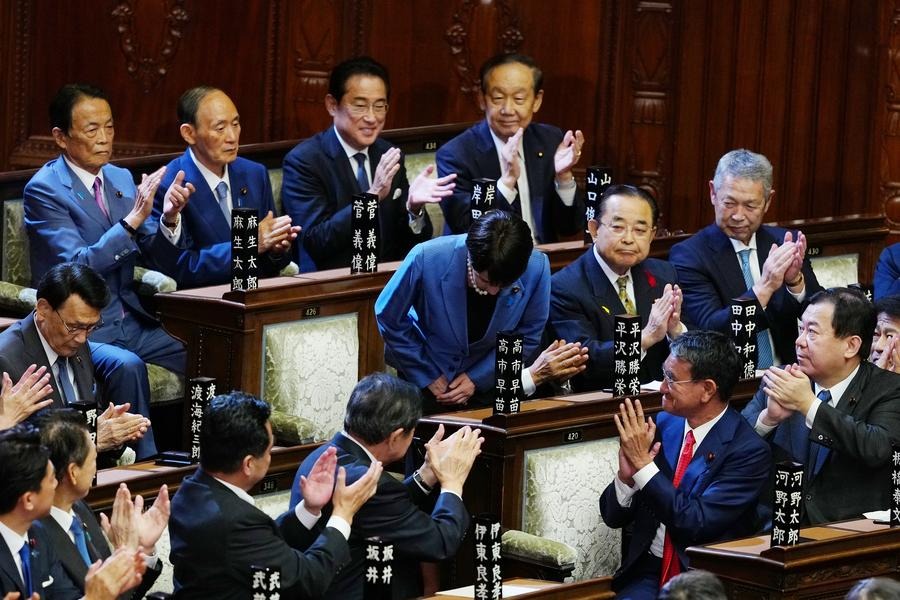Seeking Happiness for People: 70 Years of Progress on Human Rights in China

Building a service-oriented government with limited powers and clear responsibilities. The state delimits administrative power in accordance with the law. China has established a principle under which administrative bodies should not take any action that is not mandated by law. It has introduced a list of well-defined government powers and a list of responsibilities, and prohibited any power not provided for by law, or any illegal use of power. In its effort to improve governance, China has accelerated the transformation of government functions, streamlining administration and delegating power to the lower levels, exercising better supervision over the market, and providing efficient services to business. The people and businesses are thus provided with better services. China has established strict procedures for administrative law enforcement and a system of benchmarks for administrative discretion, with unified standards in law enforcement and rigorous discretionary rules, to ensure the legitimate rights and interests of the people and businesses. To make law enforcement more transparent, China has expanded the scope and channels of disclosure, and opened online portals for the public to obtain information. Twenty-five provinces and equivalent administrative units have online platforms providing information on law enforcement and on the progress and results of cases in process. Twenty-two provinces and equivalent administrative units disclose written judgments online, and 17 provinces and equivalent administrative units disclose administrative review decisions online. To strengthen the supervision of law enforcement, China has established a performance appraisal system with a focus on law enforcement, promoted IT application in law enforcement and the management and synchronized recording of case-handling procedures, and strengthened real-time supervision over law enforcement activities.
Ensuring independent and impartial exercise of judicial and procuratorial powers. China has issued five outlines for five-year reform of the people's courts and five plans on reform of the people's procuratorates. To protect citizen's right of action, it has implemented a case docketing and registration system across the board, which ensures that every case application receives a response. China has reformed the management of judicial personnel, adopted a quota system for judges and procurators, and initiated job security reform for judicial personnel, enabling them to be more regularized and professional. It has fully implemented a judicial responsibility system to ensure that those who have handled a case assume full responsibility for it. The judiciary has combined punishment and clemency in handling criminal cases, further improved criminal proceedings, and introduced reforms on showing clemency to suspects and defendants who cooperate fully. It has improved the fast-track sentencing procedure for criminal cases, further separated the handling of simple and complex cases, and formed a multi-layer criminal litigation system with Chinese characteristics. Where conditions permit, local courts and procuratorates under the provincial level have carried out unified management of personnel, funds and property. China is exploring setting up people's courts and people's procuratorates across administrative boundaries. The Supreme People's Court now has six circuit courts, and there are also courts that handle intellectual property and financial cases, and online courts. The state has strengthened the protection of public interest, and public interest lawsuits are filed by procuratorial organs. By March 2019, 157,095 cases of public interest had been handled by procuratorial organs.


































